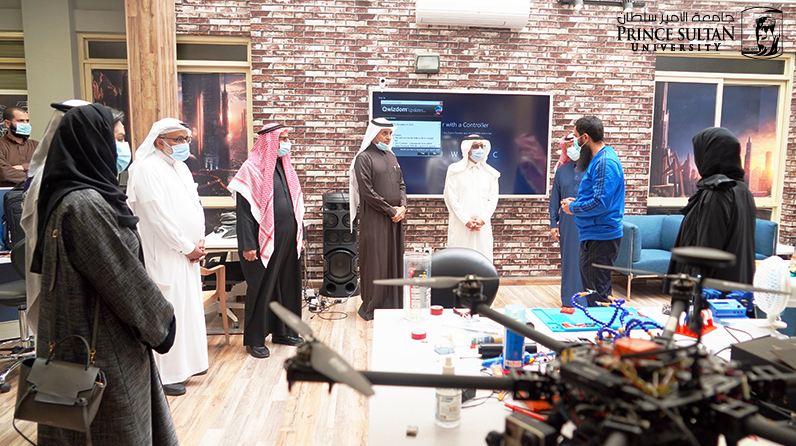More funding and reduced teaching loads have helped researchers increase their output by 500 per cent
Research excellence is integral to Prince Sultan University’s (PSU) culture, says Saad Saleh Al Rwaita, vice-president for administrative and financial affairs.
“Research is part of the university’s strategic plan, supported by higher management through publication incentives and publication fees, as well as a reduced teaching load,” Al Rwaita says. “That means researchers are getting the time and significant support to do research.”
The university’s strategy is bearing fruit. In the past five years, the institution has increased its quality research output by almost 500 per cent – from 152 journal publications in 2017 to 910 in 2021.
Thabet Abdeljawad is a professor of mathematics at PSU and is in the top 1 per cent of mathematics scientists in the world, according to findings by Stanford University and Elsevier. For Abdeljawad, the university’s establishment of research-intensive groups and laboratories has been fundamental to increasing its high-quality research output. Abdeljawad was part of the university’s first research group, which focused on applied mathematics.
“The creation of this group really affected our productivity,” he says. Abdeljawad, one of the university’s most cited researchers, notes that mathematical analysis and modelling techniques have become “very, very important”, especially given the impact of the Covid-19 pandemic. The university recently extended the scope of Abdeljawad’s group, turning it into a research laboratory and incorporating researchers from disciplines such as physics, chemistry and statistics.
“We now have 17 research laboratories and groups,” Al Rwaita says. “This is another way for us to create a culture of research.” The research hubs are geared to respond to the needs of society, he says.
Mohammad Nurunnabi, for example, heads the university’s Business, Society and Environment Lab. The lab, established in 2019, aims to promote research related to the social and environmental dimensions of businesses.
"There is a focus on interdisciplinary research and sustainability research,” Nurunnabi says, adding that this emphasis allows researchers to respond to local and international needs.
To promote faculty’s research, the university has committed to paying the publication fees for its academics and has prioritised publication in high-impact journals. “The university is creating a conducive research culture”, Nurunnabi says.
Abdeljawad agrees. The university’s publication support allows researchers to publish in high-ranking open access journals. “From a citation point of view, this is very useful,” he says. “Once the research becomes open access, it allows other researchers to follow your work.”
Such exposure increases researchers’ scope for collaboration, something that is integral to the institution’s strategy. More than 70 per cent of the research at the university involves international collaborators. “We have a very diverse faculty from more than 40 nationalities,” Al Rwaita says. “I think this is one of the key strengths for us and allows us to attract very high-quality researchers from around the globe from renowned universities.”
Although a relatively small university, PSU punches well above its weight. Sixteen of its researchers feature in the top 2 per cent of scientists in the world in various disciplines, according to findings by Stanford University and Elsevier. These researchers are Thabet Abdeljawad, Mamdouh Alenezi, Dhafer J. Almakhles, Chaker Aloui, Jehad Alzabut, Muhammad Asif, Ahmad Taher Azar, Mahajan Sagar Bhaskar, Aziz Khan, Anis Koubaa, Mohammad Nurunnabi, Basit Qureshi, Amjad Rehman, Tanzila Saba, Tamer A. Sebaey and Wasfi Shatanawi.
See original post at Times Higher Education Website

